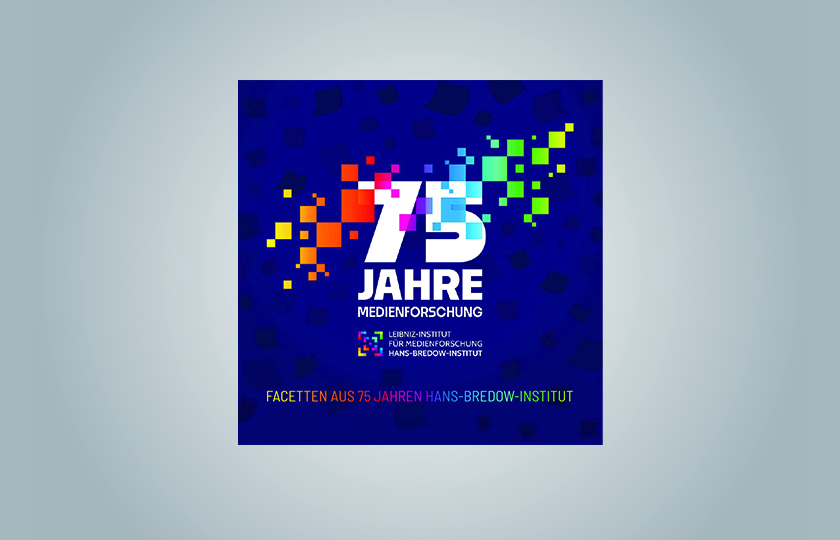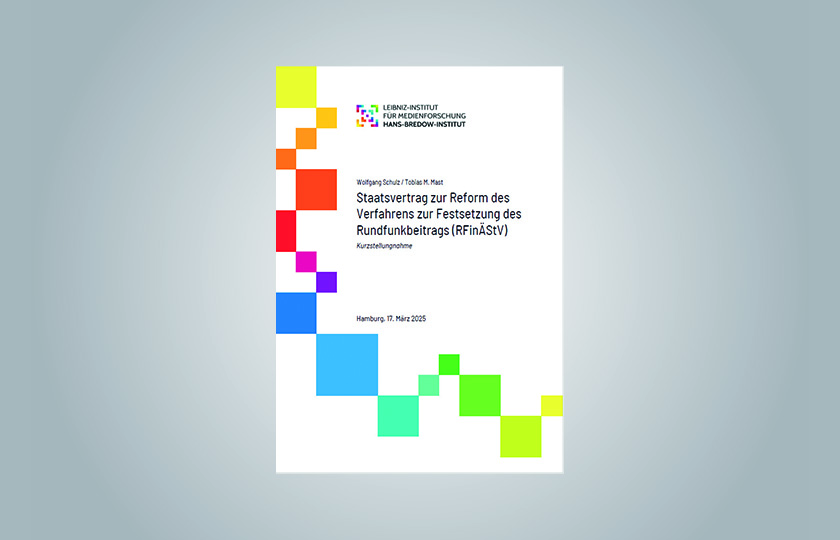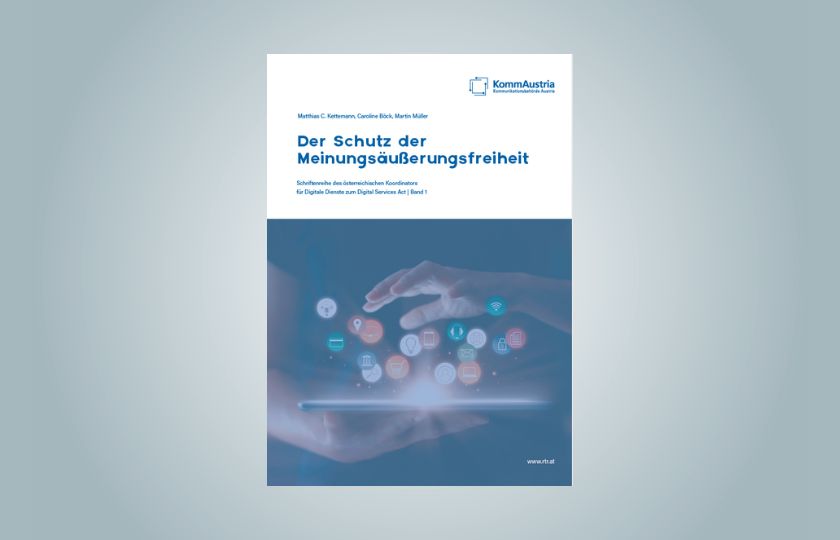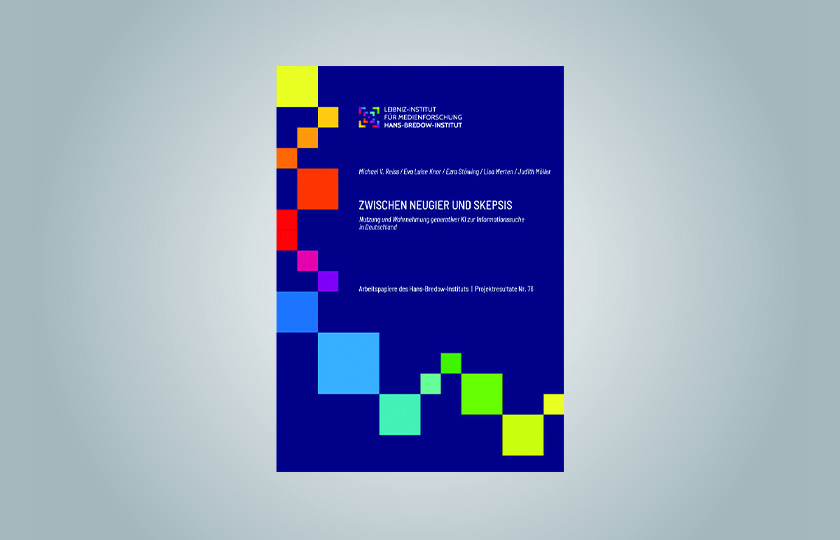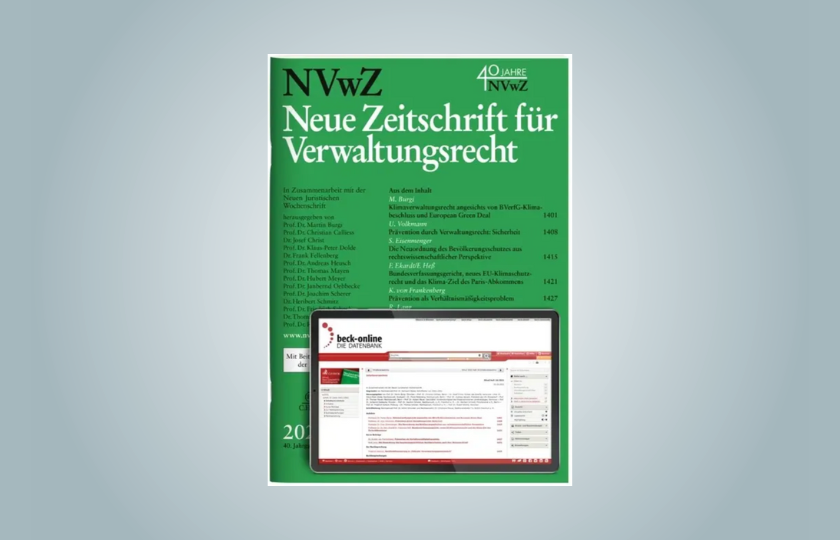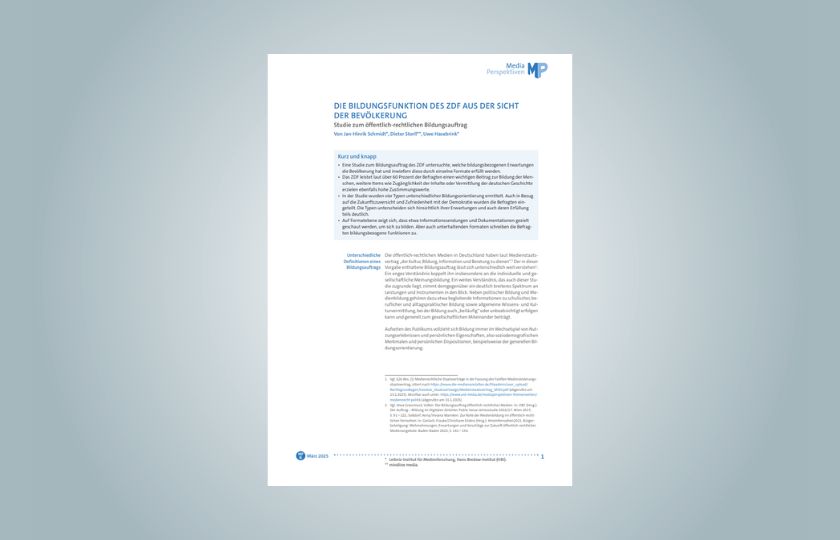The project investigates the distribution and fields of use of generative AI such as Chat GPT in private and professional contexts. It will particularly focus on the extent of using generative AI for political information purposes in the context of the 2024 European elections and for obtaining information in an educational context.
The research project “Generative Artificial Intelligence for Information Navigation” uses a representative population survey to investigate the distribution and fields of use of generative AI in private and professional contexts.
There are fears that generative AI could lead to a decline in the use of journalistic sources, particularly regarding political information procurement. An increasing fragmentation of the public sphere and a rise in incorrect or inaccurate AI-generated information could be possible consequences.
Incorrect information and decreasing autonomy of generative AI users are also a concern in an educational context. Here, both the increasing outsourcing of cognitive work to automated systems and the uncritical adoption of AI-generated information and decreasing autonomy are cited as risks. For educational institutions and providers, generative AI calls established examination concepts into question and therefore has great disruptive potential.
A particular focus of this project is therefore to find out to what extent generative AI is used for political information purposes in the context of the 2024 European elections and for information procurement in an educational context.

Photo by Igor Omilaev on Unsplash



